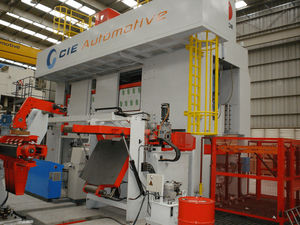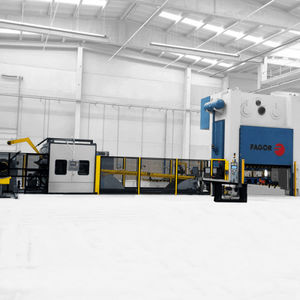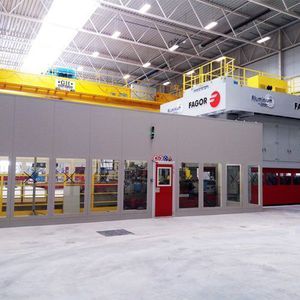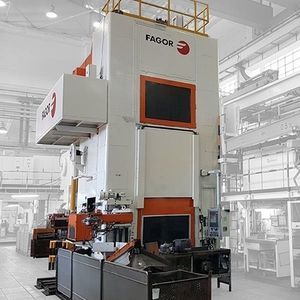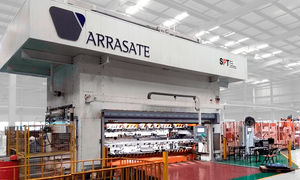
- Production Machines
- Cutting Machine
- Mechanical press
- Fagor Arrasate S.Coop.
- Products
- Catalogs
- News & Trends
- Exhibitions
Hydraulic press pneumaticmechanicalcutting





Add to favorites
Compare this product
Characteristics
- Operation
- hydraulic, pneumatic, mechanical
- Function
- cutting, test, tryout
- Applications
- for production
Description
Die tryout presses are an indispensable part of die makers, but also of OEMs. The initial adjustment is done by the die-maker at their plant, but later maintenance work is mainly done at the OEM. This is why these types of installations are different for each customer, and at FAGOR ARRASATE we understand the needs of each customer and adapt the design of the press to meet their expectations.
Test presses are key to obtaining the necessary quality of the final part within a short die-setting period. That is why the behaviour of the test press should be as similar as possible to the production presses. Using an identical or very similar press to that used for production helps to minimise the die-setting time on the production presses. As FAGOR ARRASATE is a manufacturer of test and production presses, we have demonstrated that our test presses behave very similarly to production presses.
Due to this, we believe that FAGOR ARRASATE is the European leader in test presses, both mechanical and hydraulic, especially among OEMs.
FAGOR ARRASATE try-out presses integrate advanced die adjustment options with the latest technologies. A hydraulic press can thus be equipped with hydraulic/pneumatic slides and base pads, parallelism control, cutting damping as well as energy-efficient equipment. In the case of mechanical presses, micro-inch force technology is available for low-speed die adjustment that can be replaced by servo presses that combine flexibility with speed.
Catalogs
No catalogs are available for this product.
See all of Fagor Arrasate S.Coop.‘s catalogsRelated Searches
*Prices are pre-tax. They exclude delivery charges and customs duties and do not include additional charges for installation or activation options. Prices are indicative only and may vary by country, with changes to the cost of raw materials and exchange rates.







